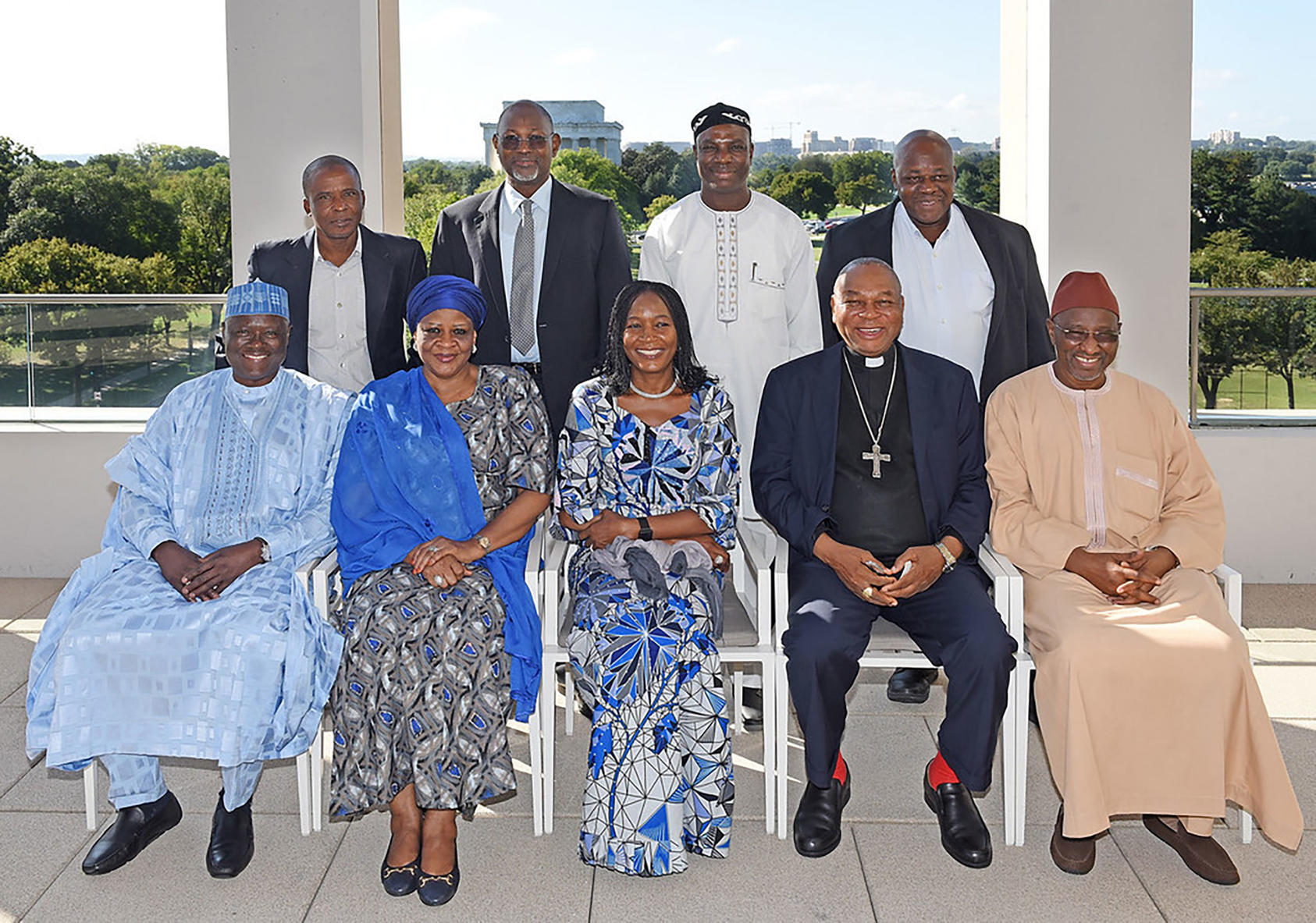Nigeria is currently a hotbed of internal conflicts that threaten the sovereignty and legitimacy of the nation-state. The Biafra agitations in the southeast, rising communal violence across the country, the Boko Haram crisis raging in the northeast, and the surge in armed robbery and kidnappings are tell-tale signs of fragility within the security apparatus of the country. The drivers of these conflicts differ in nature, but all find their remedy in the state's constitutional responsibility: the protection of lives, property, and education provisions for the citizenry. Ultimately, these responsibilities create an enabling environment for citizens to flourish and prosper.

Founded in 2016, the working group guides USIP's Nigeria programming and disseminates independent thoughts through publications, research, editorials, and op-eds. These efforts cover the state government’s role in addressing conflict, particularly in Borno, Adamawa, Sokoto, Taraba, Benue, Kaduna, and Plateau states. The working group is composed of 11 Nigerians from the civic, religious, academic, and business sectors, among others, who support a strategic approach to addressing the sources of violent conflicts in the country.
Objectives
The following three objectives guide the working group’s activities:
- Engage in preventative diplomacy by utilizing the working group’s voices to inform different decisions and policies within their spheres of influence
- Avert violence before, during, and after national and state elections by, for example, collective lobbying and strategic engagement in the target states
- Engage key governors and other relevant stakeholders to prioritize policies that proactively prevent and respond to violent conflict
Partnerships
Since its inception, the working group has served as a bridge between Nigeria’s state governments and citizens. USIP continues to support the working group in harnessing its collective experience, knowledge and relationships to advance ideas for Nigerian governments — particularly state governors — to address violence in the country, including electoral disputes and conflicts between farming and pastoralist communities.
The working group collaborates with key stakeholders such as the state peacebuilding institutions, the Northern Nigeria Governors’ Forum, and a network of Nigerian facilitators to create a viable resource base for civic and political leaders at all levels. By affording the group enough research and technical skills and connecting them with relevant academic institutions, they will be able to assist in regularly collecting reliable and timely data. This data can be documented annually to reflect the true "State of Peace" in Nigeria. The data will augment data collected by international organizations with a lower level of community penetration, enabling Nigerians to improve their research and data gathering skills and inform policies. This will provide an accurate depiction of the true nature of Nigeria's state and local conflict dynamics.
Working Group Official Members
H.E. Cardinal John Onaiyekan
Nigerian Prelate of the Roman Catholic Church
His Royal Eminence Alhaji Muhammadu Sa'ad Abubakar III
Head of Jama'atu Nasril Islam; President-General of the Nigerian National Supreme Council for Islamic Affairs
General Martin Luther Agwai
Former Nigerian Chief of Defence Staff and Chief of Army Staff; Former Chief of Training and Operations for the Nigerian Armed Forces
Professor Ibrahim Agboola Gambari, C.F.R., OCORT
Founder and Board Chair at the Savannah Centre for Diplomacy, Democracy and Development
Ambassador Fatima Balla
Former Chief Information Officer, Director-General of Internal Affairs and Special Services, and Chairperson of the National Youth Service Scheme Governing Board
Professor Attahiru Muhammadu Jega
Former Chair of the Nigerian Independent National Electoral Commission
Usman Bugaje, Ph.D.
Founding Chair of the Network for Justice; Former Member of the Nigerian Parliament
Jibrin Ibrahim, Ph.D.
Political Scientist and Development Expert; Former Member of the Nigerian Electoral Reform Committee
Aisha Murtala Muhammed Oyebode
Founder and CEO of the Murtala Muhammed Foundation
Nguyan Shaku Feese, Ph.D.
National Program Manager for the Teacher Development Program
Chris M. A. Kwaja, Ph.D.
Researcher at the Centre for Conflict Management and Peace Studies, University of Jos; Visiting Research Fellow with the Centre for Democracy and Development; Interim Nigeria Country Manager at USIP